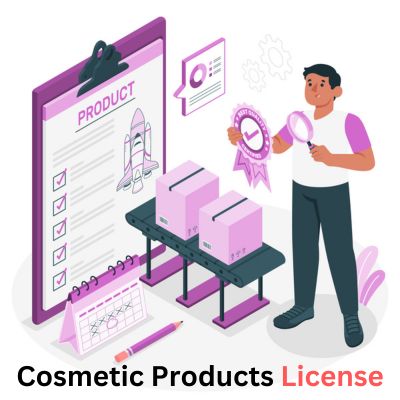
The cosmetic industry in India is growing at an unprecedented pace. With an increasing demand for skincare, haircare, and beauty products, many entrepreneurs are entering the cosmetics manufacturing business. However, before starting operations, obtaining a cosmetic products license is mandatory as per Indian regulations.
If you're planning to manufacture or market cosmetic products in India, this guide will help you understand the different licenses required, the application process, and compliance guidelines.
The Indian government regulates the cosmetics industry to ensure the safety and efficacy of products sold in the market. As per the Drugs and Cosmetics Act, 1940 and the Cosmetics Rules, 2020, obtaining a cosmetic products license is essential for:
Without a valid license, manufacturing or marketing cosmetic products in India is considered illegal and can lead to legal penalties.
To engage in the manufacturing or import of cosmetics, you need to obtain the appropriate license from the Central Drugs Standard Control Organization (CDSCO) or the respective State Licensing Authority (SLA). The primary types of licenses include:
1. License for Manufacturing Cosmetics (Form COS-8 & COS-9)
If you plan to manufacture cosmetics in India, you need to apply for the following licenses:
👉 Issuing Authority: State Licensing Authority (SLA)
✅ Required Documents:
2. Import License for Cosmetics (Form COS-12 & COS-13)
If you're importing cosmetics into India, you need to obtain the following:
👉 Issuing Authority: CDSCO
✅ Required Documents:
3. License for Sale of Cosmetics (Form 20C)
If you intend to sell or distribute cosmetics, you need to apply for:
👉 Issuing Authority: State Licensing Authority (SLA)
✅ Required Documents:
To successfully obtain a cosmetic products license, follow these steps:
1. Identify the Required License: Determine whether you need a manufacturing license, import license, or sale license based on your business activities.
2. Prepare Necessary Documents: Compile all relevant documents, including manufacturing details, safety data, layout plans, and technical staff information.
3. Check Premises Compliance: Ensure that the premises where the cosmetics will be manufactured or stored meet the requirements of the licensing authority, including adherence to Good Manufacturing Practices (GMP).
4. Submit Application: Submit your application to the appropriate authority (CDSCO or SLA) along with the required documents and prescribed fees.
5. Inspection and Verification: After receiving the application, the authority may conduct an inspection to verify compliance with applicable norms.
6. Issuance of License: Upon successful verification, the license is issued, allowing you to proceed with manufacturing, importing, or selling cosmetic products.
Applying for a cosmetic products license in India involves a systematic process, which can be done online through the SUGAM portal managed by the Central Drugs Standard Control Organization (CDSCO). Here’s a step-by-step guide:
Step 1: Register on the SUGAM Portal
Step 2: Fill the Relevant Application Form
Step 3: Pay the Applicable Fee
Step 4: Inspection by Licensing Authority
Step 5: Grant of License
After obtaining your cosmetic products license, it’s essential to ensure ongoing compliance with Indian regulations. Some key points include:
Non-compliance with the licensing requirements can lead to severe consequences, including:
To avoid such repercussions, it is vital to stay informed about the latest regulatory updates and ensure continuous compliance.
To prevent unnecessary delays or rejection of your application, avoid these common mistakes:
Securing a cosmetic products license is the first and most crucial step in establishing a legally compliant and successful cosmetics business in India. Whether you're manufacturing, importing, or selling cosmetic products, obtaining the right license ensures product quality and consumer safety.
By following the guidelines outlined in this article and maintaining strict compliance with Indian regulations, you can safeguard your business from legal challenges and build a reputable brand in the thriving Indian cosmetics market.
To learn more about cosmetic products license in India, we recommend you to visit Metacorp as it solves legal and compliance issues of new and established businesses.





We are the pioneers in offering environmental consulting services to our patrons, giving us the first mover advantage & keeping us ahead of our competitors.
Very experienced in filing, monitoring & submission of CDSCO Compliances, Drugs Manufacturing & sale guidelines, Environmental Impact Assessment, AERB consulting services, Pollution Control Board CTE & CTO Advisory Services, Waste Management Authorization from State Pollution Control Boards, Fertilizers & Insecticides Manufacturing, Wholesale & Import Compliances
